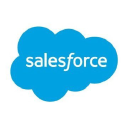On Starting A Business That Provides Sexuality Education
My name is Steve Markoff. I'm 77 years old. Born and living forever in Los Angeles, I became a businessman at 7 years old. In the 1980s, while continuing in business, I became interested in social issues. In the mid-1980s, I and an associate looked at two contentious social issues, as there seemed to be much conflicting information about them. One was the reconfirmation election of the Chief Justice of the California Supreme Court. The other was to try and understand if and how nuclear energy should be part of our future.

I knew nothing about either topic when we started our research. We accumulated a lot of information on both topics and found much information sold to the public as fact, but that was not supportable or based in fact. That's when I discovered that information not sourced (without a noted source where and when the information came from couldn't be verified) had little value.
Following my need to understand important public issues, I founded the nonprofit A-Mark Foundation in 1997 and the nonprofit public charity...











